At Advance Physical Therapy, you might hear your physical therapist ask you questions about your dental history. “Do you clench or grind your teeth?” or “Do your back molars touch when you bite down?”.
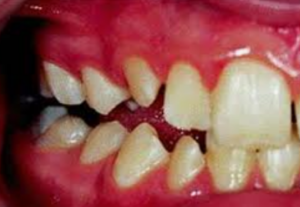
At first, these questions might not seem to relate to your musculoskeletal symptoms of neck, back, or hip pain. However, the position of your teeth during occlusion (bite) reflects the position of your head and neck at rest. The brain relies on patterns of muscular stability for upright posture and balance. Poor occlusion or bite references can lead to compensatory patterns of movement and posture that can eventually contribute to jaw pain, headaches, or dizziness.
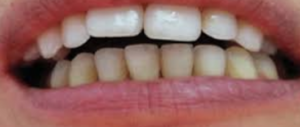
According to Ron Hruska, founder of the Postural Restoration Institute (PRI), sensing contact of the back molars is the equivalent of sensing your heels on the ground. The head uses the neurological input from the back teeth like a “floor” to sense stability and proper position. If the back molars do not touch on one or both sides, the brain only senses the front canine contact. The head and neck will have to compensate for that instability of the bite.
Imagine you can only walk or stand on the balls of your feet. There will be compensatory muscle tension that occurs in your back and neck to help you balance in that position. Overuse of sensory stability from the toes and canines can contribute to unnecessary tension throughout the body. This often leads to pain and postural imbalance.
If you have scoliosis, you may have an associated imbalance in your bite. Sometimes we find molar contact only on one side of your bite, sometimes we see a “crossbite” as depicted here. 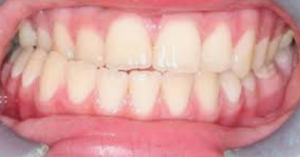 The curvature and rotational nature of the spine does not stop at the neck but may continue to impact your cranial bones and jaw position asymmetrically. In adolescents with scoliosis who are still growing, it may be important to discuss the effect of spinal and cranial asymmetry on occlusion with their dentist or orthodontist.
The curvature and rotational nature of the spine does not stop at the neck but may continue to impact your cranial bones and jaw position asymmetrically. In adolescents with scoliosis who are still growing, it may be important to discuss the effect of spinal and cranial asymmetry on occlusion with their dentist or orthodontist.
How can Advance Physical Therapy help?
We are a Postural Restoration Certified clinic, meaning all our physical therapists have taken multiple courses from the Institute, and four of our PTs are Postural Restoration Certified.
There are specific PRI exercises that position your head and neck into a more relaxed and neutral state through diaphragmatic breathing to retrain new patterns of stability. Certain postures and positions allow for the greatest contact of the molars. PRI trained physical therapists will prescribe these activities according to each patients’ presentation. Your PRI physical therapist may facilitate a sense of balanced bite contact through a tongue depressor that creates a temporary flat surface for balanced occlusion of the canines and molars.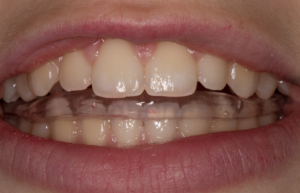
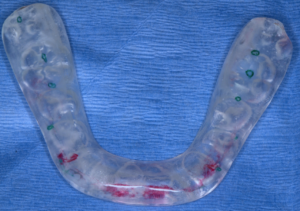
Oftentimes, dental intervention is required and recommended alongside physical therapy. We work primarily with our wonderful, local dentist, Dr. Angela Ellis, DDS of Ellis Family Dentistry in Chapel Hill. Dr. Ellis creates impressions of the teeth in a neutral head and neck position and then creates a mouthguard-like splint to wear mostly at night and while doing PRI exercises. There are different kinds of splints, but their main purpose is to improve a sense of stability through the molars to retrain and relax compensatory muscles of the head and neck.




